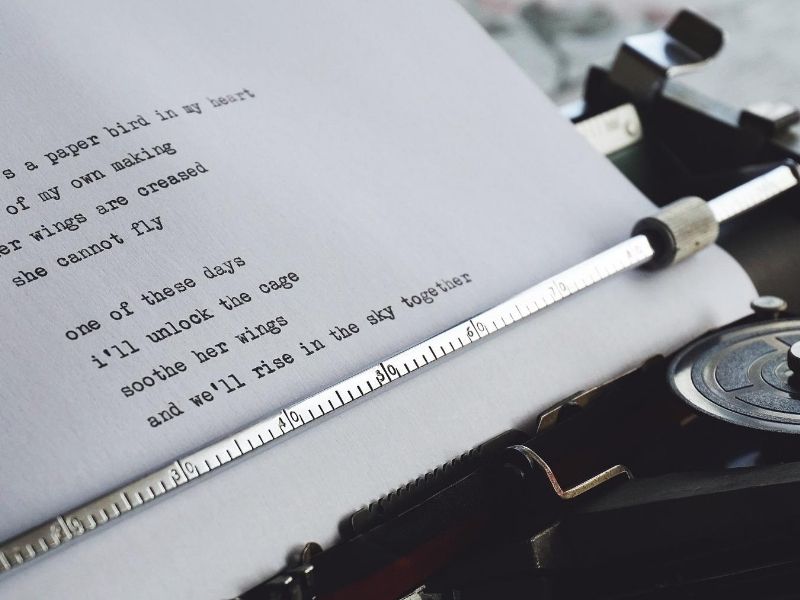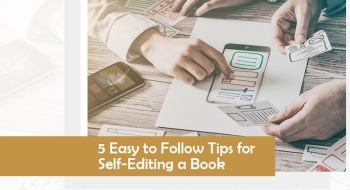Poetry Writing Tips for Beginners

Poetry is one of the oldest and most respected literary forms. It is also one of the most deceptively difficult to write because it takes a certain style and skill with words to create a coherent work of poetry. You will also need to be as observant as possible, and be constantly open to inspiration.
You can technically use anything as a subject for your poems. The main challenge of learning how to write poetry is putting all your observations and imagery into written form. So if you are going to take up poetry, you should know how to write poetry.
Here are 8 easy to follow tips on writing poetry:
- Read great poems
If you are writing a poem, you should get the right references first. Don’t just jump into the poetry writing process without anything to base your work on. How are you supposed to write quality poetry if you haven’t read any?
So before you hunker down and start the writing process, you should make sure that you read as many great poems as possible. Take a gander at the works of Neruda, Keats, Whitman, and Dickinson to name a few of the greats.
Overall, the more great poems you read, the more nuanced and polished your poetry will be. This does not mean that you should copy their work of course. Think of them as references that will expand your horizons as a poet.
- Stay away from tropes or clichés
Although you should take the time to read great examples of poetry, you should also be wary of using clichés. Poetry has been around for a very long time, and throughout the years, there have been techniques and phrases in poetry writing that have been overused.
They were overused because they were extremely popular at some point, but lost their relevance or popularity in recent times. If you use clichés in your work, your audience will notice them right away and may consider your poetry as subpar and original.
So if you are going to take up poetry, you should be aware of these clichés and avoid them as much as possible.
- Choose a specific theme
Like any other type of literary work, your poem will need a specific theme. You can’t write a poem effectively if you don’t have a set theme. A theme will give your work both focus and a set goal. Your theme can be practically anything under the sun. It could be about loss, love, hate, greed, etc.
Your theme could also be about a very specific event in your life, such as your first love or a broken relationship. Your theme could be anything that you can think of, what matters is that it can resonate with your audience. When choosing a theme, you should never rush the process.
- Free Your Mind
When it comes to writing poetry, it is important that you go into the writing process without any preconceived notions. Remember that you are going to write a poem out of scratch, and it is best that you free your mind from unnecessary thoughts.
While it is a good idea that you know the right format and rules for poetry writing, it is also important that your writing is as free-flowing as possible. Just choose a topic to write about, and write whatever comes to you. It is during these flow states that you will be able to create your best work.
- Choose a poetic style
Poetry is one of the oldest forms of literature, and it has evolved through the centuries. This means that you have a veritable collection of poetry styles to choose from.
You can choose the very lengthy Epics or the more versatile free verse styles, or if you want a more straightforward yet profound style, you can choose to write haikus. The choice is up to you. Just remember though, that you should use only one style per poem.
Don’t try to mix or match two styles together, because they will just end up sounding awkward. Choose one that you are really comfortable with and get started on writing great quality poetry.
- Read it aloud
During the writing process, it is important that you check how your poetry sounds. It may seem perfect when you’re reading it. However, it may sound awkward or lacking once you read it aloud.
Seeing as most poems are supposed to be read aloud, you should make sure that the poem’s wordplay and flow are up to scratch. So take the time to read your work aloud. Read them aloud after each stanza. Check them for any inconsistencies or sloppy wordplay.
If you want to be more thorough, you could read it aloud to family and friends. They should keep their ears open for any instances of clunky wordplay. That way, once you have your work critiqued by a veteran poet, your work will be in the best condition possible.
- Have your poem critiqued
Once you finish writing a poem and check them for errors, now is the time to have your work critiqued. It can be a bit daunting to have your work critiqued at first, but it is necessary if you want to improve as a poet.
If it is possible, you should have other more established poets look at your work. They will be able to provide a more detailed review of your work, and show you how to write poetry properly
There is no guarantee that they will like your work, and most of these critics will not pull their punches when they give their reviews. So it is important that know how to handle their criticism. Think of their criticism as a way to improve your skills and become even more enmeshed in the art of poetry.
- Polish it up
After you have your poem critiqued, now is the time to polish it up. Take their advice and make any changes to the wordplay or word usage. If you see any clunky wordplay in your work, try to smoothen them out. Remember that poetry should have a flow, an almost lyrical feel to them.
Go through your work, and check for any clichés or repeated phrases that need to be taken out. You should also make sure that your grammar and spelling are up to scratch.
Learning how to write poetry can be slow going at first. However, once you put these poetry tips for beginners into practice, you’ll be able to create quality poetry in no time.
Although the poetry writing process can be difficult, it is still a very satisfying feeling to create great works of poetry. So just keep at it, and enjoy every bit of the experience.
Become a Self-Published Author in 3 Simple Steps
Powered by Experts, Published by You. Reach 40,000+ Retailers & Libraries Around the World. Concierge Service. Tailored Packages. BBB Accredited Business. 100% Royalty Program.



